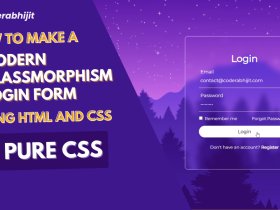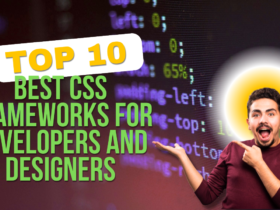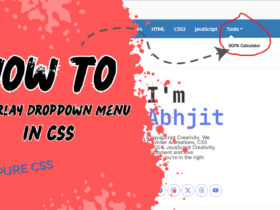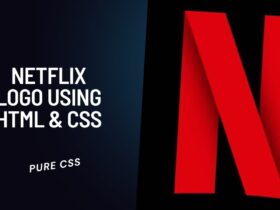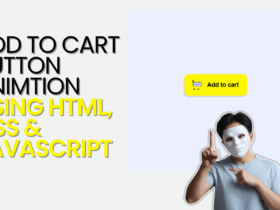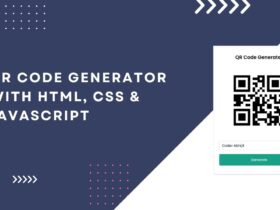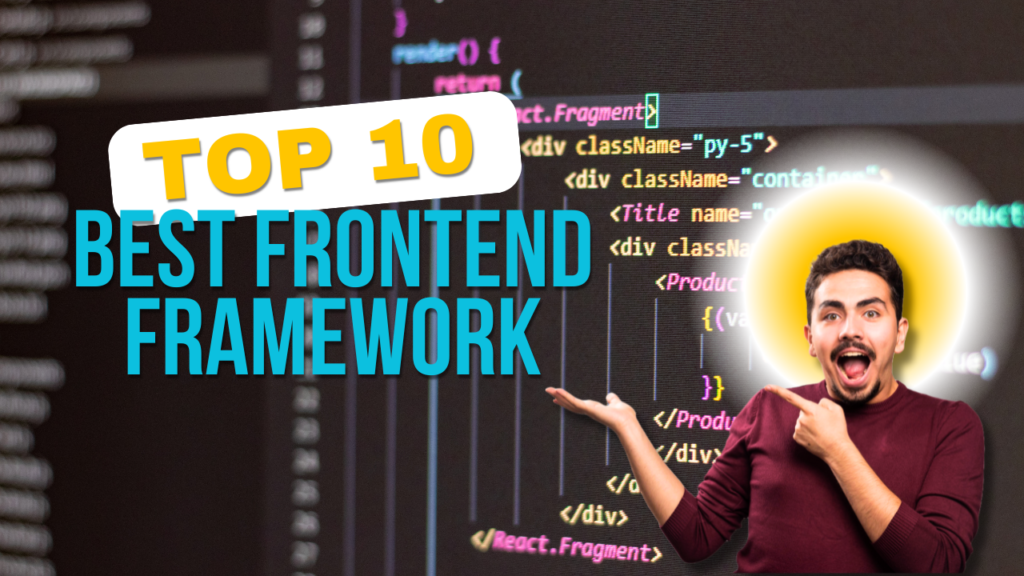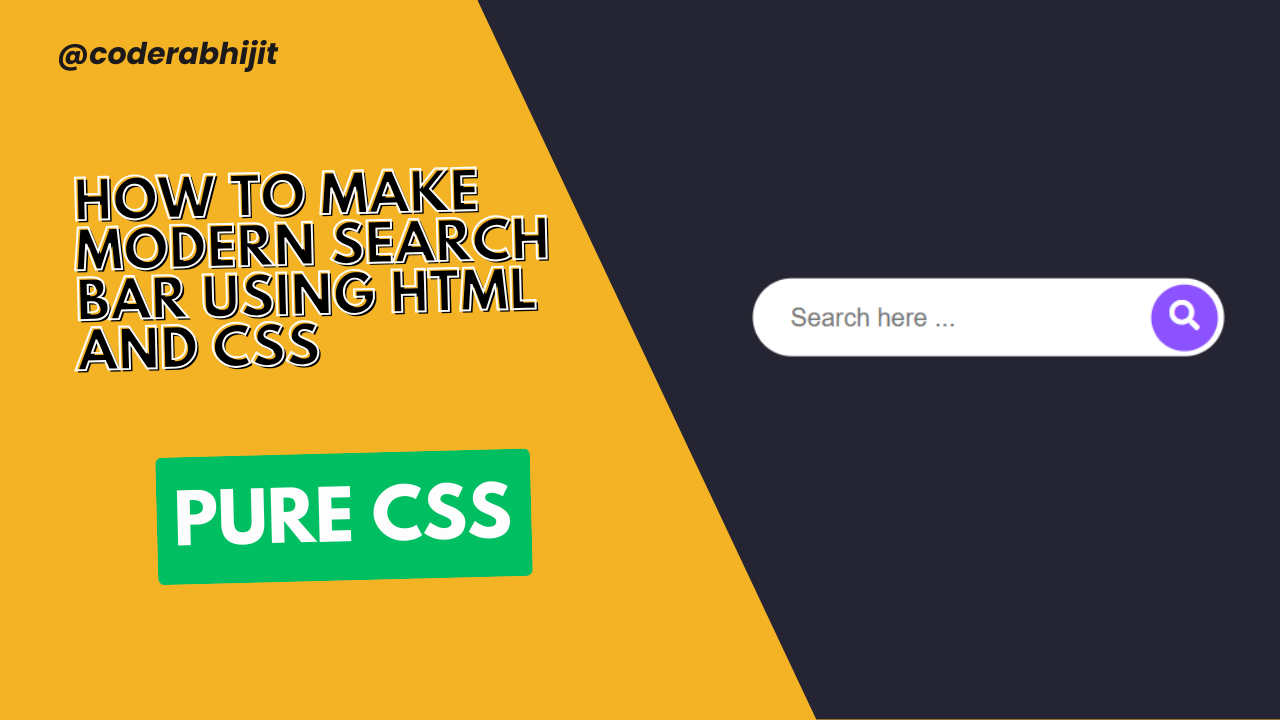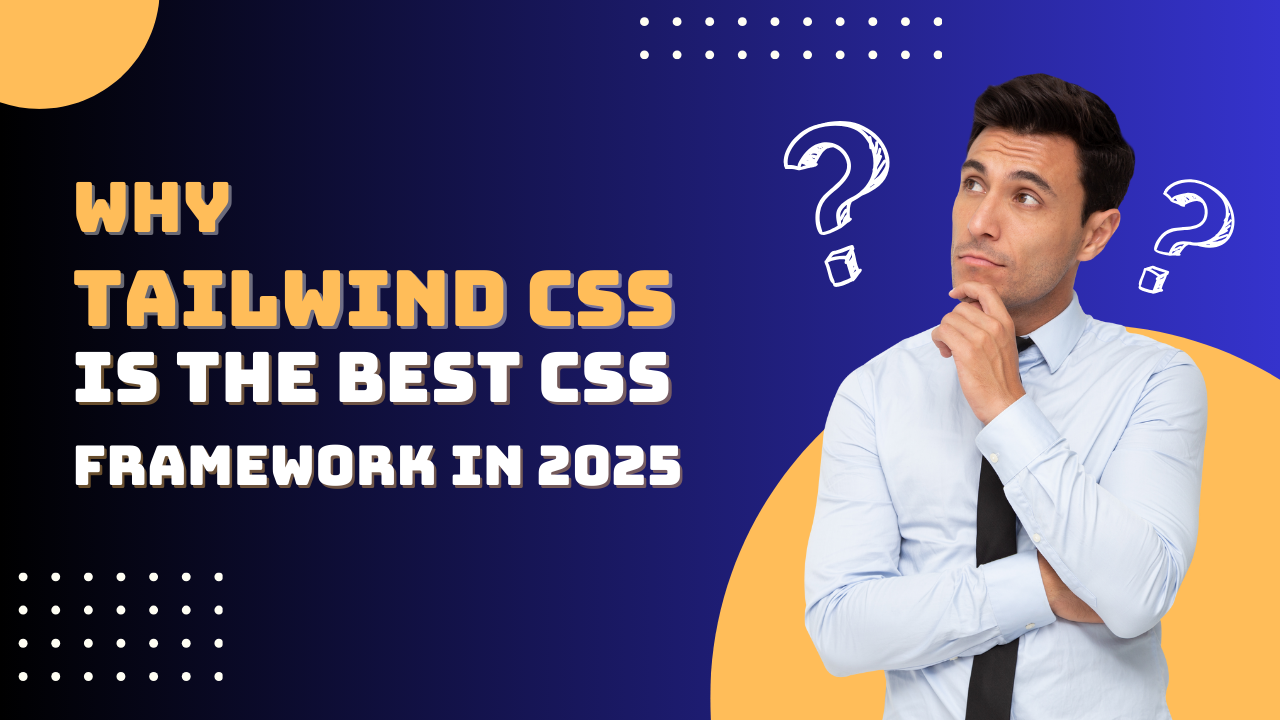As a developer, choosing the right frontend framework is one of the most important decisions I make for any project. In 2025, the landscape of frontend development continues to evolve, with new tools and technologies making their mark. To save you the hassle of endless research, I’ve compiled my list of the Top 10 Best Frontend Framework options for 2025. These frameworks stand out for their performance, community support, and ability to create stunning user interfaces.
What are the top 10 best Frontend Framework in 2025
1. React
React remains one of the most popular frameworks in 2025 for good reason. Developed by Facebook, it’s a library (yes, technically not a framework) for building user interfaces.
Pros:
- Reusable components save time and effort.
- Large community support and extensive libraries.
- Excellent for SEO with server-side rendering (via Next.js).
Cons:
- Can feel overwhelming for beginners.
- Frequent updates might require developers to stay constantly updated.
Why Choose React? If your project requires dynamic and interactive user interfaces, React is a solid choice.
2. Vue.js
Vue.js is known for its simplicity and flexibility. In 2025, it continues to be a favorite for small to medium-sized projects.
Pros:
- Easy to learn and implement.
- Detailed documentation.
- Two-way data binding makes it intuitive.
Cons:
- Smaller community compared to React.
- Not as widely adopted for enterprise applications.
Why Choose Vue.js? Vue.js is perfect for developers who want a lightweight and easy-to-learn framework for creating fast and interactive applications.
3. Angular
Angular, backed by Google, is a full-fledged framework offering everything you need to build large-scale applications.
Pros:
- Comprehensive framework with built-in tools.
- Dependency injection makes it powerful for enterprise apps.
- Robust community and long-term support.
Cons:
- Steep learning curve.
- Relatively heavy compared to other frameworks.
Why Choose Angular? If you’re building a large-scale, complex web app, Angular is worth the effort to learn.
4. Svelte
Svelte’s unique approach of compiling components at build time makes it one of the most exciting frameworks in 2025.
Pros:
- No virtual DOM, leading to faster performance.
- Simple and beginner-friendly syntax.
- Smaller bundle sizes.
Cons:
- Smaller ecosystem.
- Limited community support compared to React or Vue.
Why Choose Svelte? Go for Svelte if you want to create fast, lightweight applications with minimal overhead.
5. Next.js
Next.js builds on React to provide server-side rendering, static site generation, and other advanced features.
Pros:
- Excellent for SEO and performance.
- Built-in routing and API capabilities.
- Works seamlessly with React.
Cons:
- Requires understanding of React first.
- Overkill for small projects.
Why Choose Next.js? Choose Next.js if you’re building a high-performance, SEO-friendly application or need a backend and frontend in one.
6. Nuxt.js
Nuxt.js is Vue’s equivalent of Next.js, offering server-side rendering and static site generation for Vue applications.
Pros:
- Optimized for SEO and performance.
- Streamlines Vue development.
- Great for building universal apps.
Cons:
- Limited compared to Next.js in terms of ecosystem.
- Can be overcomplicated for smaller apps.
Why Choose Nuxt.js? If you’re a Vue enthusiast looking to optimize for performance and SEO, Nuxt.js is a no-brainer.
7. Flutter Web
Originally for mobile apps, Flutter now supports web development in 2025, making it a unique player.
Pros:
- Single codebase for mobile and web.
- Rich widgets and customizable UI.
- Great for building highly interactive UIs.
Cons:
- Relatively new in web development.
- Larger bundle sizes.
Why Choose Flutter Web? If you want to build apps for both mobile and web without duplicating efforts, Flutter Web is a compelling option.
8. Ember.js
Ember.js is a full-featured framework with strong conventions, making it a reliable choice for complex applications.
Pros:
- Strong conventions and opinionated structure.
- Built-in testing and debugging tools.
- Excellent performance for large apps.
Cons:
- Steep learning curve.
- Smaller community and slower updates.
Why Choose Ember.js? If you value stability and want a framework with strong conventions, Ember.js delivers.
9. Alpine.js
Alpine.js is a lightweight framework designed for simple interactivity without the need for a full-fledged framework.
Pros:
- Minimal and lightweight.
- Easy to integrate into existing projects.
- No build step required.
Cons:
- Limited for larger applications.
- Smaller ecosystem.
Why Choose Alpine.js? It’s ideal for adding interactivity to small projects without the overhead of larger frameworks.
10. Qwik
Qwik is gaining traction in 2025 for its innovative “resumability” feature, allowing faster page loads.
Pros:
- Ultra-fast performance.
- Focus on loading only what’s needed.
- Great for modern, high-performance apps.
Cons:
- Still maturing.
- Smaller ecosystem and community.
Why Choose Qwik? If speed is your top priority and you’re building cutting-edge applications, Qwik is worth exploring.
My Final Thoughts
Picking the right frontend framework depends on your project requirements, your team’s expertise, and your future goals. For large-scale enterprise applications, Angular or React are excellent choices. If simplicity and speed matter, Vue.js or Svelte might be your best bet. For those focusing on SEO and performance, Next.js and Nuxt.js are unbeatable.
In 2025, the frontend world is all about choosing the framework that aligns with your vision. So, take your time, experiment, and find the one that works best for you!


